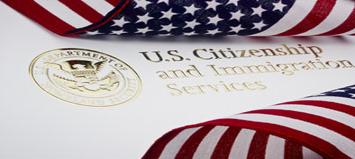

Los Angeles Immigration Attorney Pasadena San Francisco San Diego
Main Office: 1-(888) 485-5208 / (626) 240-4654


| The information you obtain at this site is not, nor is it intended to be, legal advice. You should consult an attorney for advice regarding your individual situation. We invite you to contact us and welcome your calls, letters and electronic mail. Contacting us does not create an attorney-client relationship. Please do not send any confidential information to us until such time as an attorney-client relationship has been established. |
© 2008-2016 Azucena Valencia Law Corporation. All Rights Reserved.
Los Angeles Immigration Attorneys: 1055 E. Colorado Blvd. Suite 500, Pasadena, CA 91106. PH: 626-240-2654
San Francisco Immigration Attorneys: Ph: 1-888-485-5208. San Diego Immigration Attorneys: Ph: 1-888-485-5208
| Unlawful Presence Waiver/601a (Updated) |

U.S. Citizenship and Immigration Services (USCIS) announced a final rule expanding the existing provisional waiver
process to allow certain individuals who are family members of U.S. citizens and lawful permanent residents
(LPRs), to more easily navigate the immigration process. The provisional waiver process promotes family unity by
reducing the time that eligible individuals are separated from their family members while they complete immigration
processing abroad.
This final rule builds on a process established in 2013 to support family unity. Under that process, certain
immediate relatives of U.S. citizens can apply for provisional waivers of the unlawful presence ground of
inadmissibility, based on the extreme hardship their U.S. citizen spouses or parents would suffer if the waiver were
not granted. The rule goes into effect on Aug. 29, 2016 and expands eligibility for the provisional waiver process
to all individuals who are statutorily eligible for the waiver of the unlawful presence ground of inadmissibility.
Until now, only immediate relatives of U.S. citizens were eligible to seek such provisional waivers before departing
the United States for the processing of their immigrant visas. Those eligible for the provisional waiver process
under the 2013 rule are only a subset of those eligible for the waiver under the statute. This regulation expands
eligibility for the process to all individuals who are statutorily eligible for the waiver.
To qualify for a provisional waiver, applicants must establish that their U.S. citizen or lawful permanent resident
spouses or parents would experience “extreme hardship” if the applicants are not allowed to return to the United
States.
The final rule also makes changes to Form I-601A, Application for Provisional Unlawful Presence Waiver. These
changes will go into effect along with the final rule.
If you believe that you or someone you know may benefit from this new regulation, we recommend
that you consult with our experienced immigration attorneys to discuss your options.
process to allow certain individuals who are family members of U.S. citizens and lawful permanent residents
(LPRs), to more easily navigate the immigration process. The provisional waiver process promotes family unity by
reducing the time that eligible individuals are separated from their family members while they complete immigration
processing abroad.
This final rule builds on a process established in 2013 to support family unity. Under that process, certain
immediate relatives of U.S. citizens can apply for provisional waivers of the unlawful presence ground of
inadmissibility, based on the extreme hardship their U.S. citizen spouses or parents would suffer if the waiver were
not granted. The rule goes into effect on Aug. 29, 2016 and expands eligibility for the provisional waiver process
to all individuals who are statutorily eligible for the waiver of the unlawful presence ground of inadmissibility.
Until now, only immediate relatives of U.S. citizens were eligible to seek such provisional waivers before departing
the United States for the processing of their immigrant visas. Those eligible for the provisional waiver process
under the 2013 rule are only a subset of those eligible for the waiver under the statute. This regulation expands
eligibility for the process to all individuals who are statutorily eligible for the waiver.
To qualify for a provisional waiver, applicants must establish that their U.S. citizen or lawful permanent resident
spouses or parents would experience “extreme hardship” if the applicants are not allowed to return to the United
States.
The final rule also makes changes to Form I-601A, Application for Provisional Unlawful Presence Waiver. These
changes will go into effect along with the final rule.
If you believe that you or someone you know may benefit from this new regulation, we recommend
that you consult with our experienced immigration attorneys to discuss your options.